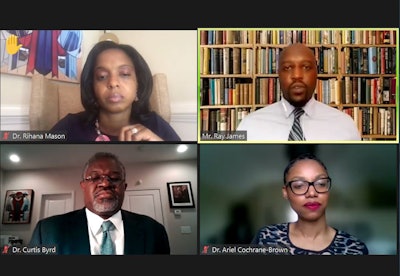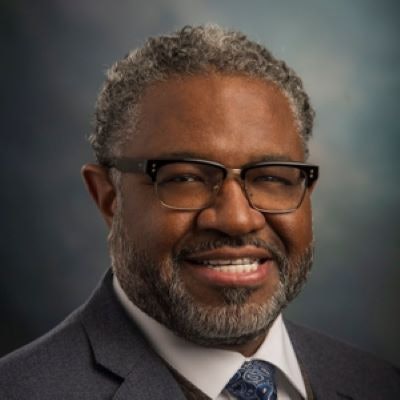Over the next decade, the education landscape is expected to shift.
As early as 2022, 51% of college-bound graduates are projected to be students of color. By 2029, the number is expected to reach 55%, according to the National Center of Education Statistics.

Using the book’s Type, History, Research, Inclusion, Identity, Voice and Expectation (THRIVE) index tool, students can learn about overall expectations, inclusion practices, social capital and notable participants of each pipeline program.
“Many of these students come from low income and first-generation populations into college,” said Byrd, special advisor to the provost at Georgia State University (GSU). “These programs have certainly been proven to be effective in increasing the likelihood of success in K-12, college and graduate and professional studies.”
To further discuss best practices of pipeline programs and encourage more underrepresented students to pursue the academic pipeline, Byrd and Mason—in partnership with SAGE Publishing—commenced a three-part webinar that kicked off on Wednesday.
“Positioning Underrepresented Minority Students for College: Best Practices of Precollegiate Pathway Programs,” highlighted two programs: Knowledge is Power Program (KIPP) and College Advising Corps.
Over the years, KIPP, like other charter school networks, earned a negative connotation for their “militarization of Black and Brown bodies,” said Johnny Ray James, assistant principal of humanities at KIPP Soul Academy in Atlanta. After reevaluating its practices, the program has focused on incorporating culturally relevant teaching and critical race theory within its schools.
At KIPP Soul Academy, for example, students are studying African and African American history beginning in fifth grade.
“A lot of Black and Brown people in America don’t start to learn their history until they reach college age,” said James.
 Dr. Curtis Byrd
Dr. Curtis ByrdStaff members also engage with summer reading texts associated with culturally relevant teaching or pedagogy.
Beyond academics, the program offers exposure to career-related skills and networks. Through extracurricular activities, students can engage in law practice through court simulations, develop and launch their own businesses and participate in architectural curriculum.
“We try to make sure that the things that we do outside of class are not the typical run in the mill extracurricular, but they are things that actually give kids skills and background knowledge to be able to engage,” said James.
On the other hand, the College Advising Corps aims to enroll one million low-income, first-generation and underrepresented students in postsecondary education by 2025.
To do so, recent college graduates—known as “near peers”—are hired as advisors to work full-time in high schools. Not only are they close in age to their advisees but also share similar identities. The College Advising Corps partners with colleges and universities to assist in the hiring process.
“We know that it is ever increasingly important to make sure that we are not just honing in on one aspect of our identities,” said Mason, a research scientist at the Urban Child Study Center at GSU. “It is not just about having someone that’s near an age, but this reflection of diversity… being able to have community advisers that are coming from the very places that can then share their experiences is very useful.”
Though most of the advising stems around preparing seniors for college, any student can begin having conversations to better understand the postsecondary process, she said.
Advisors use “Grace,” an online data tracking system to measure performance indicators and ensure students find the best college match.
“Even though data might seem like it’s just numbers, each of those numbers is attached to a person,” said Dr. Ariel Cochrane-Brown, Southeast regional director at College Advising Corps. “Every time you do something with an individual, it’s important that you that you track that and that you are keeping in touch with what’s going on with each of the students that you’re serving and making sure that you’re serving all as many students as possible.”
Beyond KIPP and College Advising Corps, the book also identified best practices of other precollegiate initiatives including United Negro College Fund’s (UNCF) Portfolio Project, Fund II Foundation’s UNCF STEM Scholars Program and the University of Maryland, Baltimore County’s (UMBC) Meyerhoff Scholars Program.
Each of these programs focus on providing academic skills and training, professional development opportunities and mentorship.
“These are all critical to successfully matriculating and graduating from high school and seamlessly moving into college,” said Byrd.
The two additional webinars are scheduled for July and September and will feature Dr. Ansley Abraham, director of the Southern Regional Educational Board’s State Doctoral Scholars Program; Dr. Taiese Bingham-Hickman, associate director of the Leadership Alliance; UMBC President Dr. Freeman A. Hrabowski; and Dr. Jamal Watson, a veteran journalist and editor and faculty member at Trinity Washington University.
Sarah Wood can be reached at [email protected]


















